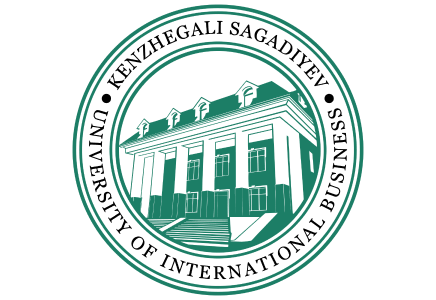International Business Logistics
Languages of instruction:
Kazakh, Russian, English
Specialized subjects at the UNT:
Mathematics and Geography
International programs:
Academic mobility; Dual Degree program
What is it?
Training of competitive logistics specialists in the field of operation, transportation organization, and traffic management across all modes of transport.
The program focuses on preparing logisticians with leadership qualities and skills in logical analysis of assigned tasks, capable of working in international teams and engaging in organizational and managerial activities to ensure minimal total costs, high-quality service, and integrated interaction of all elements of the logistics system.
The training also emphasizes the development of skills in accurate calculation and justification of total costs, high service levels, and coordination across transportation, warehousing, and production processes.
The goal is to prepare certified specialists who meet international standards set by leading logistics associations.
Training of logisticians with leadership qualities and the skills of logical analysis of assigned tasks, able to work in an international team, engage in organizational and managerial activities to ensure a minimum of total costs, high quality service and integrated interaction of all elements of the international logistics system, owning skills of accurate calculation and informed decisions international management of material, information, financial flows in order to ensuring minimum total costs, a high level of service, the interaction of all elements of the transport, storage, production process.
- Knows the organizational elements of the management process and analyzes the laws of the market, the hierarchy of management. Determines, effectively manages and is able to predict the behavior of consumers, producers and intermediaries. Has communication skills and language competencies in professional communication with customers, consumers. Knows how to identify factors affecting the economy.
- Has a categorical conceptual apparatus for the sale of logistics services on the international market due to language competence. Continuously develops language skills in oral and written form in professional activities in order to meet the needs of customers and profit from logistics services. He has communicative and linguistic competencies in a business context for the sale of logistics services.
- Has the skills and rules of life safety at logistics facilities in logistics activities using environmental, financial, logical, mathematical functions. Analyzes regulatory documents and standards for logistics and customs services, taking into account the legislation of non-CIS countries, taking into account environmental requirements. Has the skills of organizing cargo transportation taking into account safety regulations and environmental standards on international transport corridors. Has the skills of customs clearance and freight forwarding, knows customs procedures. Identifies logistical risks at the international level, determines the degree of risk (economic, environmental) using scientific methods.
- Shows knowledge and skills in functional areas of business. Knows the methodology of design and development of automated information systems. Identifies the problems of macroeconomics at the level of prices and inflation. Owns technologies of customs procedures taking into account economic changes. Applies the methodology of reduced costs. Owns the technology of commodity distribution. Applies correlation parameters and regression coefficients in calculations. Assesses the logistical situation at the micro and macro levels. Conducts audit and analysis for forecasting and management of logistics activities.
- Analyzes the laws of the market and business, owns and applies methods of scientific analysis, classifies scientific methods in order to organize the business process of logistics management. Has the skills of planning, motivation and control. Knows how to work in a business team. Has the skills to form a legal culture in a team, is able to solve legal issues in business. He is oriented in state legal issues. Forms effective business communications, owns business communication methods.
- Reads, speaks, listens and perfectly speaks the state, Russian and foreign languages, conducts a business conversation in the legal field with professional terms, analyzes regulatory documents in logistics in a foreign language, identifies and analyzes financial, economic logistics risks at the international level in foreign economic activity due to foreign language proficiency.
- Has the skills of complex collection, generalization, registration of business information and audit of logistics activities, is able to apply innovative methods and tools for managing logistics operations, plans business, creates strategic development plans
- He has the methods and skills of conducting scientific research in the field of finance, is able to conduct statistical analysis, determines absolute and relative values. Possesses the skills of visualization of the obtained scientific results, applies scientific methods of analysis such as analysis of variance in the management of transport systems. Owns methods of reducing costs in the organization of logistics procedures.
№ | Name of discipline |
1 | Economic theory and Microeconomics |
2 | Accounting and Audit |
3 | Introduction to Research Methods |
4 | Kazakh (Russian) language 3 |
5 | Kazakh (Russian) language 4 |
6 | Management |
7 | Fundamentals of law and anti-corruption culture |
8 | Business Information Management |
9 | Foreign language 3 |
10 | Foreign language 5 |
11 | Foreign language 6 |
12 | Second foreign language 4 |
13 | Macroeconomics |
14 | Marketing |
15 | Legal aspects in international logistics |
16 | Psychology of business relationships |
17 | Statistics |
18 | Customs logistics |
19 | Risk management in logistics |
20 | Finance |
21 | Econometrics |
22 | Second foreign language 1 |
23 | Second foreign language 2 |
24 | Second foreign language 3 |
25 | Special Course 1: Practice Firm |
26 | Special Course 2: Practice Firm |
27 | Logistics management and controlling |
28 | Logistic management of foreign trade enterprises |
29 | International transport and economic corridors |
30 | Planning and quality management in logistics |
31 | Terminal service for international logistics |

